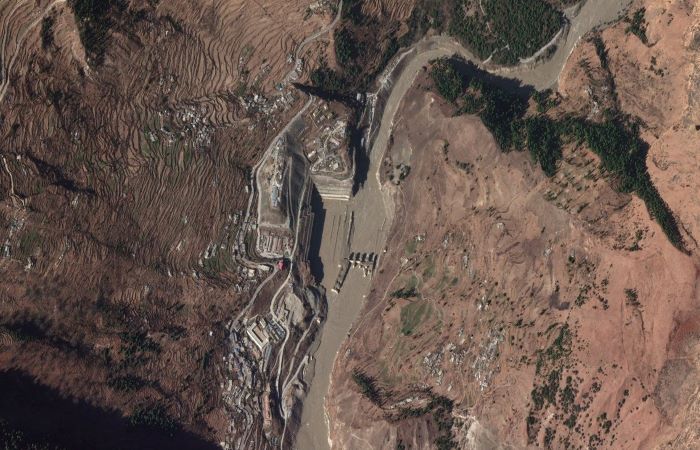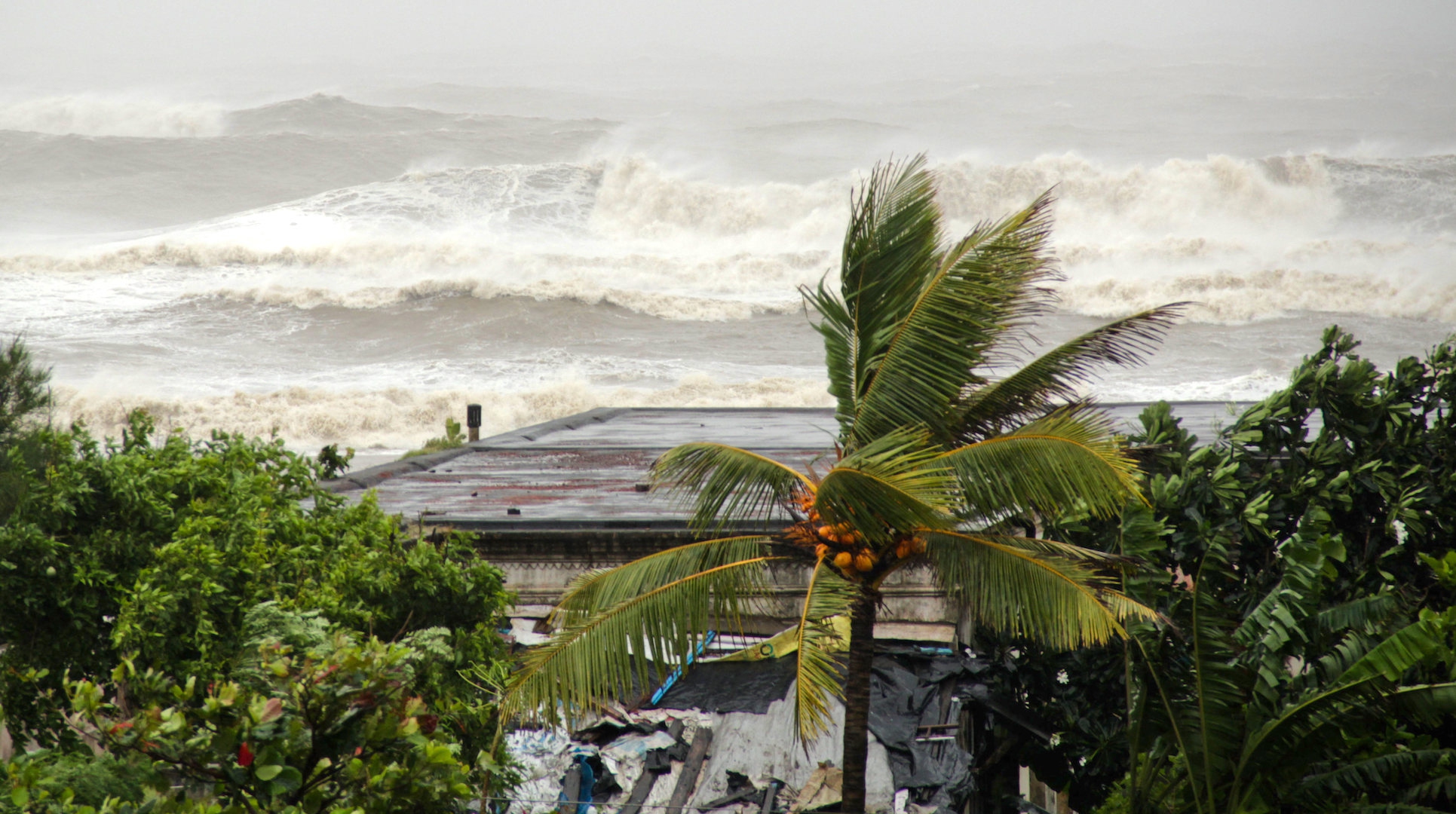Sleepless Nights: Climate change triggers warmer nights in India
As India continues to suffer a severe heatwave, new analysis shows that climate change added approximately 50 to 80 nights each year where the temperature exceeded 25°C, with serious impacts on sleep and health.
By Kartiki Negi / Jul 5, 2024

AI generated image
Climate change is leading to a rise in nighttime warming, which is impacting sleep quality and human health in India and across the globe, according to a new analysis by Climate Central and Climate Trends. Nighttime temperatures have increased even more rapidly than daytime temperatures as the world heats up due to climate change, primarily caused by burning fossil fuels like coal, oil, and gas.
The analysis looked at the number of times the minimum nighttime temperature exceeded 20° and 25°C in summers over the last 10 years (2014-2023) and where this is attributable to climate change, focusing on India, the United States, and the United Kingdom. These temperature thresholds were used due to evidence that sleep and human health are negatively impacted above these temperatures.
The average person on Earth experienced 4.8 additional days above 20°C as a result of higher nighttime temperatures induced by climate change between 2018 and 2023. Meanwhile, over this time period, the average person experienced an additional 11.5 days per year above 25°C.
“Our analysis shows that over the last decade the average person on Earth experienced almost five more nights that were uncomfortably or even dangerously hot due to climate change. These hot nights prevent people from recovering from extreme heat during the day and are likely to have shortened and disrupted people’s sleep, with a range of serious knock-on effects on physical and mental health,” said Michelle Young, Climate Impacts Research Associate at Climate Central.
Young further added, “We also know these impacts are not being experienced evenly or equally, with disparities between and within countries based on income, access to air-conditioning, age and other factors. As one of the countries worst affected by extreme heat caused by climate change, higher minimum temperatures overnight have made this year’s record-breaking heatwave in India even more deadly. As nighttime temperatures continue to shoot up, there will be more and more of these sleepless nights until the world stops burning fossil fuels like coal, oil and gas and cutting down forests.”
Warming Nights in India: An alarming trend
Climate change has had a major influence on nighttime temperatures above 25°C in India. The new analysis shows that approximately 50 to 80 days each year were added above this threshold by climate change in cities across Kerala, Karnataka, Maharashtra, Tamil Nadu, Punjab, Jammu and Kashmir, and Andhra Pradesh, between 2018 and 2023.
Among the metro cities, Mumbai has seen the highest changes in the nighttime temperatures, with the city experiencing an additional 65 days of warmer nights due to global warming. 2023 registered 92 nights with minimum temperature above 25°C. In absence of climate change, this number would have been as low as 30.
West Bengal and Assam are the regions that have been most impacted, with cities like Jalpaiguri, Guwahati, Silchar, Dibrugarh, and Siliguri experiencing between 80 and 86 additional days each year above the 25°C threshold due to climate change, on average.
Several cities across India saw between 15 and 50 additional days where the minimum temperatures exceeded 25°C due to the influence of climate change, including Jaipur, with an additional 19 hot nights attributable to climate change.
Meanwhile, in both observations and in the counterfactual climate, the nighttime summer temperatures across India often exceed 20°C over the entire summer period. The cities that had the largest number of days where the minimum temperature exceeded 20°C due to climate change are Gangtok, Darjeeling, Shimla, and Mysore, with an average of 54, 31, 30, and 26 days added by climate change, respectively.
Higher nighttime temperatures can cause physiological discomfort and impact human health by preventing body temperature from cooling off during the night, increasing mortality risks. There is also a growing body of evidence that as night-time temperatures rise, it is adversely affecting the quality and length of sleep. Poor sleep adversely affects physical and mental health, cognitive functioning and even life expectancy. Hot nights can have disproportionate impacts on vulnerable groups, including the elderly and people who do not have access to proper cooling mechanisms.
“The urban heat island effect is most visible in the night-time temperatures. Cities turn into urban heat islands when buildings, roads, and other infrastructure absorb and re-emit heat, causing cities to be several degrees hotter than surrounding rural areas. During the day, the sun’s rays reach as shortwave radiation and heats the Earth’s surface. At night, the heat escapes as longwave radiation. While shortwave radiation can easily penetrate through and reach the surface, the longwave gets trapped easily by concrete and clouds,” said Dr Roxy Mathew Koll, Climate Scientist, Indian Institute of Tropical Meteorology, Pune.
He further added, “The high-rise buildings and concrete setup in the cities do not let the excess heat to escape during the night. As the temperatures do not cool down, the heatwave continues into the night. Open green spaces and natural environment with trees can help release the heat faster during the night. However, in India, we do not appreciate natural space as much as we appreciate skyscrapers. Add some haphazard city planning, poor architecture and unsustainable construction to it, the recipe for an urban heat island is complete. The difference in the night-time temperatures between the city and rural areas. Climate change is aggravating the heat everywhere but the urban heat islands that trap this heat is our own construction.”
“The impact of high minimum temperatures is often overlooked in tropical countries such as India. This is concerning since the population density in many areas is high and not everyone can afford cooling devices. In such cases, the room temperature can be a lot more than the outside air temperature, and if it is accompanied by high relative humidity, the human body finds it very difficult to cool down. Generally high minimum temperatures are accompanied by high maximum temperatures, so the human body faces a double impact. This ultimately leads to disturbed sleeping patterns at night and heat exhaustion during the day,” said Dr Akshay Deoras, Research Scientist, National Centre for Atmospheric Science, University of Reading, UK.
New records set for nighttime heat in India
These findings come during a week that saw new records for nighttime heat in several Indian cities. On June 19, Delhi shattered the all-time high minimum temperature record, with the mercury reaching 35.2°C overnight. Delhi recorded almost four number of additional nights over 25°C due to climate change between 2018 and 2023, according to the Climate Central analysis.
On June 18, Alwar in Rajasthan had a minimum temperature of 37°C, the highest ever nighttime temperature since records began in 1969. Alwar experienced almost 9 additional nights over 25°C that are attributable to climate change, between 2018 and 2023. In Uttar Pradesh, Lakhimpur Khiri, Shahjahanpur and Varanasi also witnessed their highest recorded minimum temperatures at 33°C, 33°C and 33.6°C respectively this week. Varanasi saw 4 additional nights over 25°C due to climate change from 2018 to 2023. These increasingly frequent extreme nighttime temperatures are contributing to heat stress, exhaustion and heat-related deaths.
The current ongoing heatwave in India has been made hotter, frequent and more likely by climate change, according to scientific studies by World Weather Attribution and ClimaMeter.
Climate Change Warmer Nights High temperatures Health

